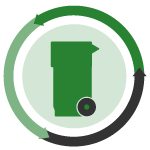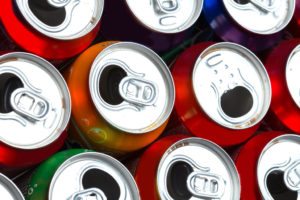 A contamination-reduction campaign draws an angry response from some residents, and New York City approves a ban on polystyrene foam food-service items (again).
A contamination-reduction campaign draws an angry response from some residents, and New York City approves a ban on polystyrene foam food-service items (again).

 A contamination-reduction campaign draws an angry response from some residents, and New York City approves a ban on polystyrene foam food-service items (again).
A contamination-reduction campaign draws an angry response from some residents, and New York City approves a ban on polystyrene foam food-service items (again).
 The Windy City’s recycling rate sees another drop, and some residents are unhappy with the way Charlotte, N.C. wants OCC placed in the cart.
The Windy City’s recycling rate sees another drop, and some residents are unhappy with the way Charlotte, N.C. wants OCC placed in the cart.
 Miniature liquor bottles are proposed for inclusion in a state’s bottle bill, and building tenants in Chicago make some noise after their landlords’ failure to provide recycling service.
Miniature liquor bottles are proposed for inclusion in a state’s bottle bill, and building tenants in Chicago make some noise after their landlords’ failure to provide recycling service.
 Details emerge on a recycling collection contract negotiation process in Columbus, Ohio, and a study finds millennials would sacrifice social media for seven days to boost recycling.
Details emerge on a recycling collection contract negotiation process in Columbus, Ohio, and a study finds millennials would sacrifice social media for seven days to boost recycling.
 A U.K. coffee chain begins collecting post-consumer coffee cups at its 2,000 locations, and an Eastern European country has a long way to go to meet the continent’s diversion goals.
A U.K. coffee chain begins collecting post-consumer coffee cups at its 2,000 locations, and an Eastern European country has a long way to go to meet the continent’s diversion goals.
 According to an industry report, 54.5 percent of aluminum cans put on the U.S. market in 2015 were recovered. That’s down from 56.7 percent in 2014.
According to an industry report, 54.5 percent of aluminum cans put on the U.S. market in 2015 were recovered. That’s down from 56.7 percent in 2014.
 Washington, D.C. is taking steps toward its newly adopted goal of decreasing the amount of material it sends to disposal. One hurdle was completed last week with the release of the District’s first solid waste diversion report.
Washington, D.C. is taking steps toward its newly adopted goal of decreasing the amount of material it sends to disposal. One hurdle was completed last week with the release of the District’s first solid waste diversion report.
 A leader in a German village vows to fight food scrap collection, and an online panel will discuss ways to reverse the U.K.’s falling recycling rate.
A leader in a German village vows to fight food scrap collection, and an online panel will discuss ways to reverse the U.K.’s falling recycling rate.
The recycling rate for aluminum cans reached its highest level in 17 years, although an estimated $800 million worth of the metal is still landfilled each year.
A just-released report from the U.S. EPA indicates the 2013 national recycling rate was 34.3 percent, barely budging from 2012’s rate of 34.5 percent.
